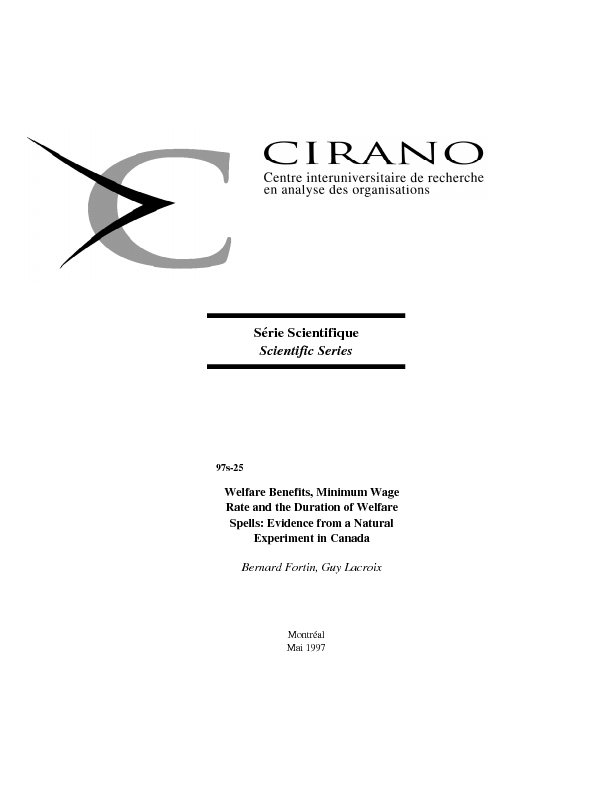Welfare Benefits, Minimum Wage Rate and the Duration of Welfare Spells: Evidence from a Natural Experiment in Canada
In this paper we analyze the impact of benefits on the length of welfare spells. It introduces a natural experiment approach of comparing the length of welfare spells before and after a major reform of the welfare program that took place in Québec in August 1989. An important feature of this reform was the abolishment of discrimination based on age that applied to single individuals and childless couples below the age of thirty. With the reform, their monthly benefits rose from $173 (in dollars of 1986) to $425, an increase of over 145%. To analyze the impact of the reform, we utilize a semi-parametric duration model with time-varying covariates such as welfare benefits, minimum wage rate, unemployment rate, etc. We find that benefits have an important impact on spell duration of individuals below thirty years of age. We also find that the minimum wage rate has an adverse effect on the duration of individuals in the 18-24 age group, but a positive effect on those in the 25-29 age group. Finally, our estimates suggest that the reform increased duration on welfare by 2 to 4.5 months.
[ - ]




